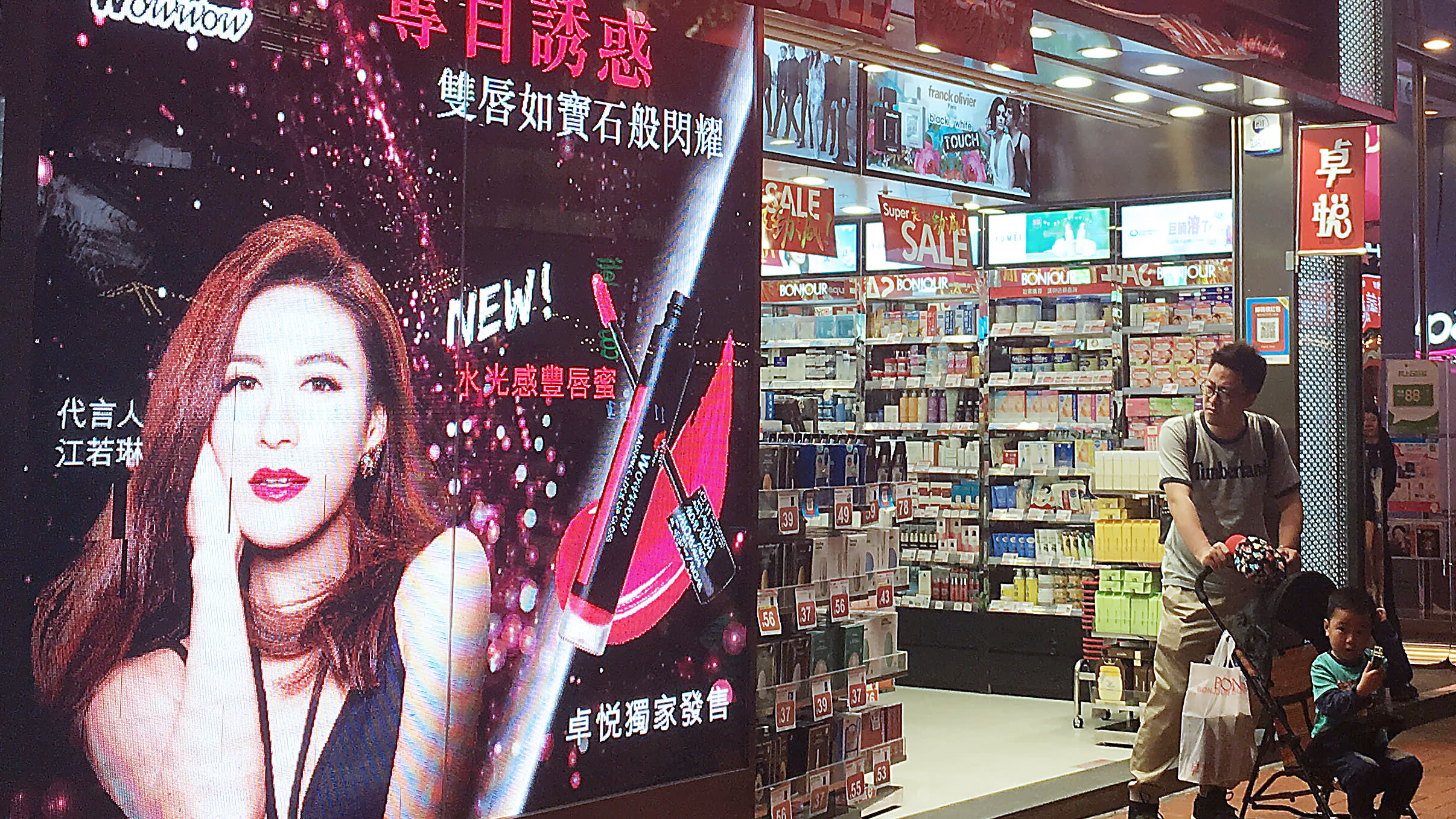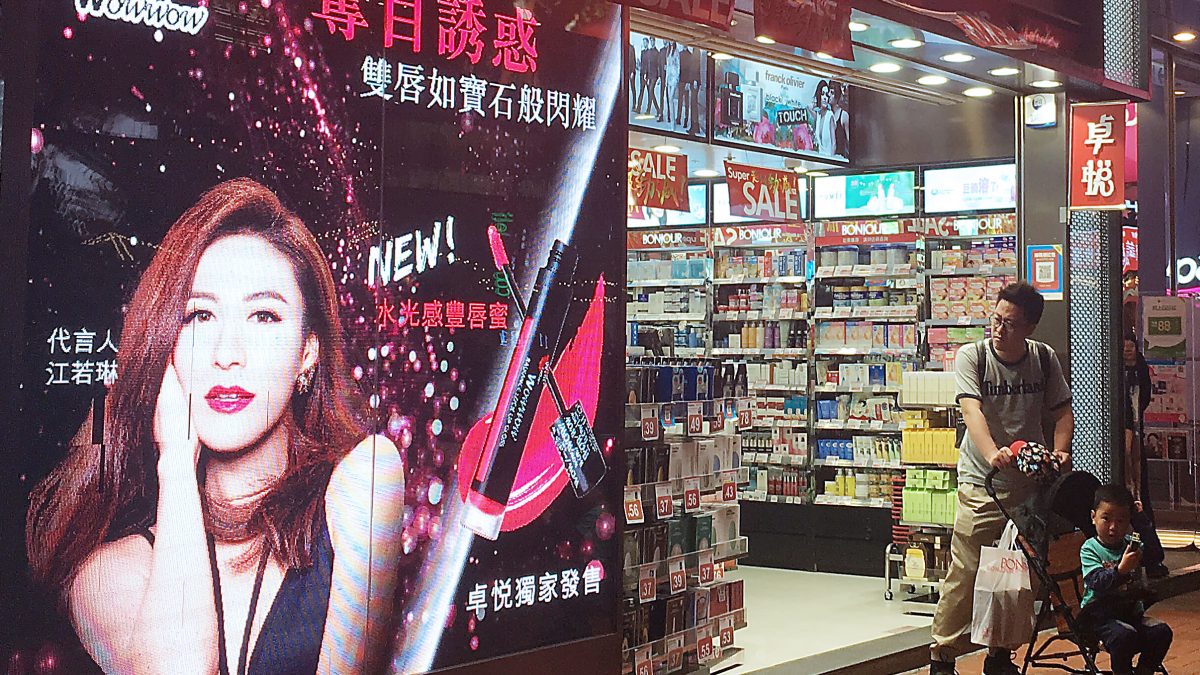
HONG KONG — Alibaba Group Holding‘s new mirror may not be able to tell you “who is the fairest of them all,” but it can tell you all about the latest beauty trends.
The new gadget, introduced by the sprawling e-commerce and tech conglomerate earlier this month, consists of an eight-inch mirror equipped with an artificial intelligence-powered smart speaker. On voice command, it adjusts light settings to let users see their face perfectly, whether they are sitting in a dark coffee shop or lounging on a sunny beach. The mirror also offers beauty tips, monitors UV levels and can even help order cosmetic products on Alibaba’s Tmall platform, if the user asks it to.
Alibaba’s voice-activated mirror is the latest example of companies stepping up their efforts to marry beauty with technology as they look to tap into growing demand from China’s tech-savvy customers. While no data is available on how big the nascent “beautytech” market is, analysts say there are clear signs that it is on the rise.
“Smartening up the beauty sector is certainly the trend, and many companies have begun taking action,” said Jason Yu, general manager of market intelligence company Kantar Worldpanel China. “With Chinese customers seeking personalized beauty products, companies will have to respond with the help of high technology,” he said.
Driven by that demand, devices like 3D nail polish printers — which allow users to upload a design via a mobile app and print the customized nail polish on the spot — have taken Chinese cities by storm. Sales of beauty devices reached 4 billion yuan ($595 million) in China in 2017, with an estimated growth of 50% last year, according to global consumer market research company Mintel. Among 3,000 Chinese customers surveyed by Mintel in 2017, one out of five had tried virtual makeover services using augmented reality technology.
“Beauty brands are scrambling to make it easier for customers to try out their products,” said Zhou Wenqi, a Shanghai-based analyst at Mintel. “Compared to traditional ways that customers have to remove makeup after every try, applying cosmetics virtually is more convenient and appealing to millennials,” she said.
Sephora launched its first concept store in Asia last September in Shanghai. With Sephora’s Virtual Artist, a makeup app co-developed with Chinese augmented reality startup Meitu, visitors can try out their new look without having to worry about clean up. In Hangzhou, Alibaba deployed its Magic Mirror device at a local shopping mall, where the AR-enabled interactive digital screen offers virtual makeovers to women waiting in line at restrooms. The company plans to introduce the Magic Mirror across the nation.
Alibaba’s goal is not to sell smart mirrors, but to boost sales of lipstick, eye shadow and other beauty products, according to Kantar’s Yu. While China’s retail sales in December grew at their slowest pace since 2003, cosmetics are one of the few segments where the shopping spree has continued.
The company also aims to “leverage the device to attract marketing money,” Yu said. “Beauty brands are looking for new ways to interact with customers. There is a huge market potential for smart mirrors.”
Analysts say China’s move to integrate tech with beauty is also part of a global trend. In Japan, the country’s leading beauty brand Shiseido has teamed up with Microsoft to create an AR-enabled makeup app for women working from home who do not want to bother with makeup but still want to look polished in a video conference call.
L’Oreal, meanwhile, last year acquired ModiFace, a Canadian startup specializing in AR and AI technology, the first-ever takeover by the French cosmetics group of a non-beauty company.
At China’s International Import Expo last year in Shanghai, L’Oreal demonstrated innovations ranging from a 3D-printed liquid foundation to a robotic arm that can help busy working women complete their makeup in five minutes. While those products have yet to enter the Chinese market, “no one would ignore China’s tech-savvy customers,” Yu said.
But not every product may be a hit. Although Alibaba has yet to disclose the price and shipment time of its voice-controlled smart mirror, some Chinese customers have already decided they will not be interested.
Zhang Yue, a 35-year-old marketing specialist in Chongqing, said her current mirror — priced at 100 yuan and equipped with a manually controlled lighting system — is good enough. “If I need other functions, my smartphone can do the job. Why do I need to buy a smart mirror?” she said.

